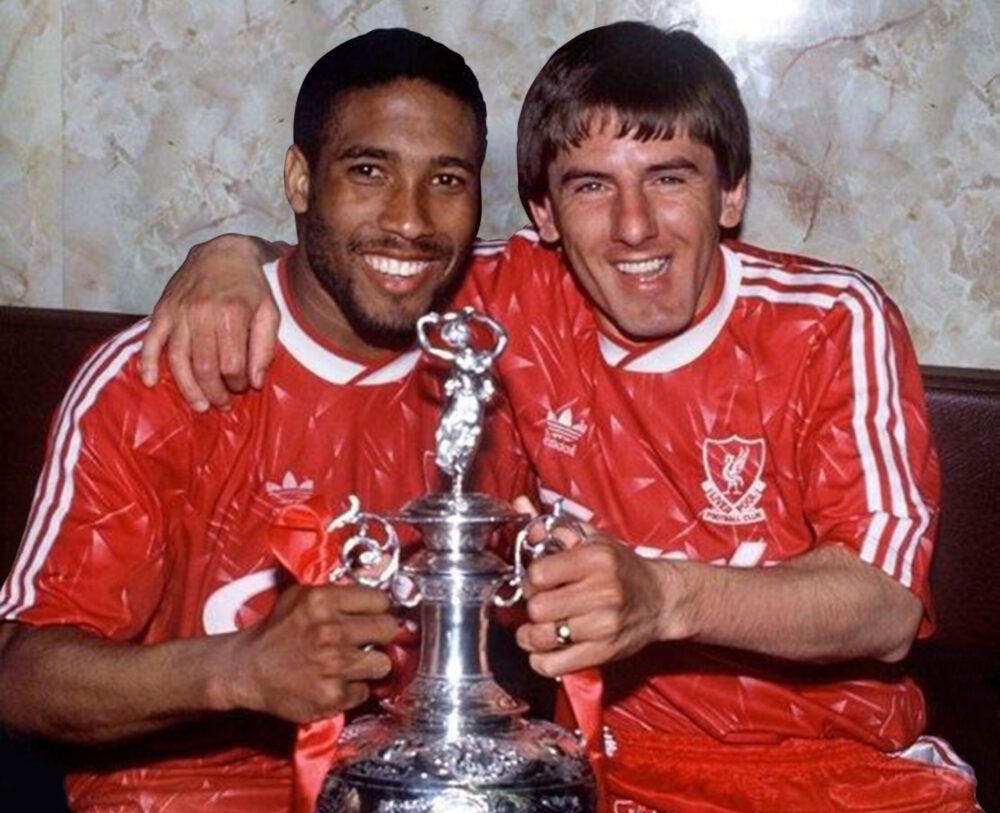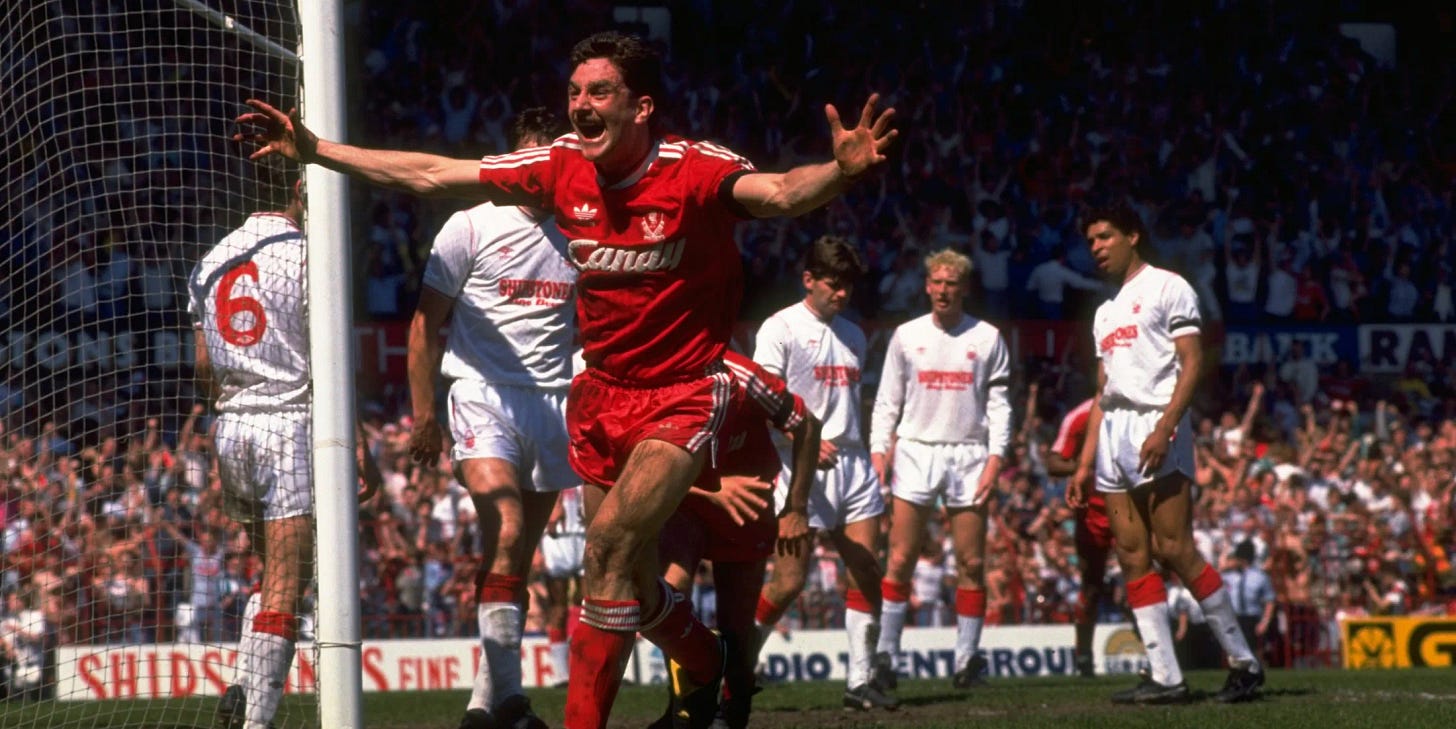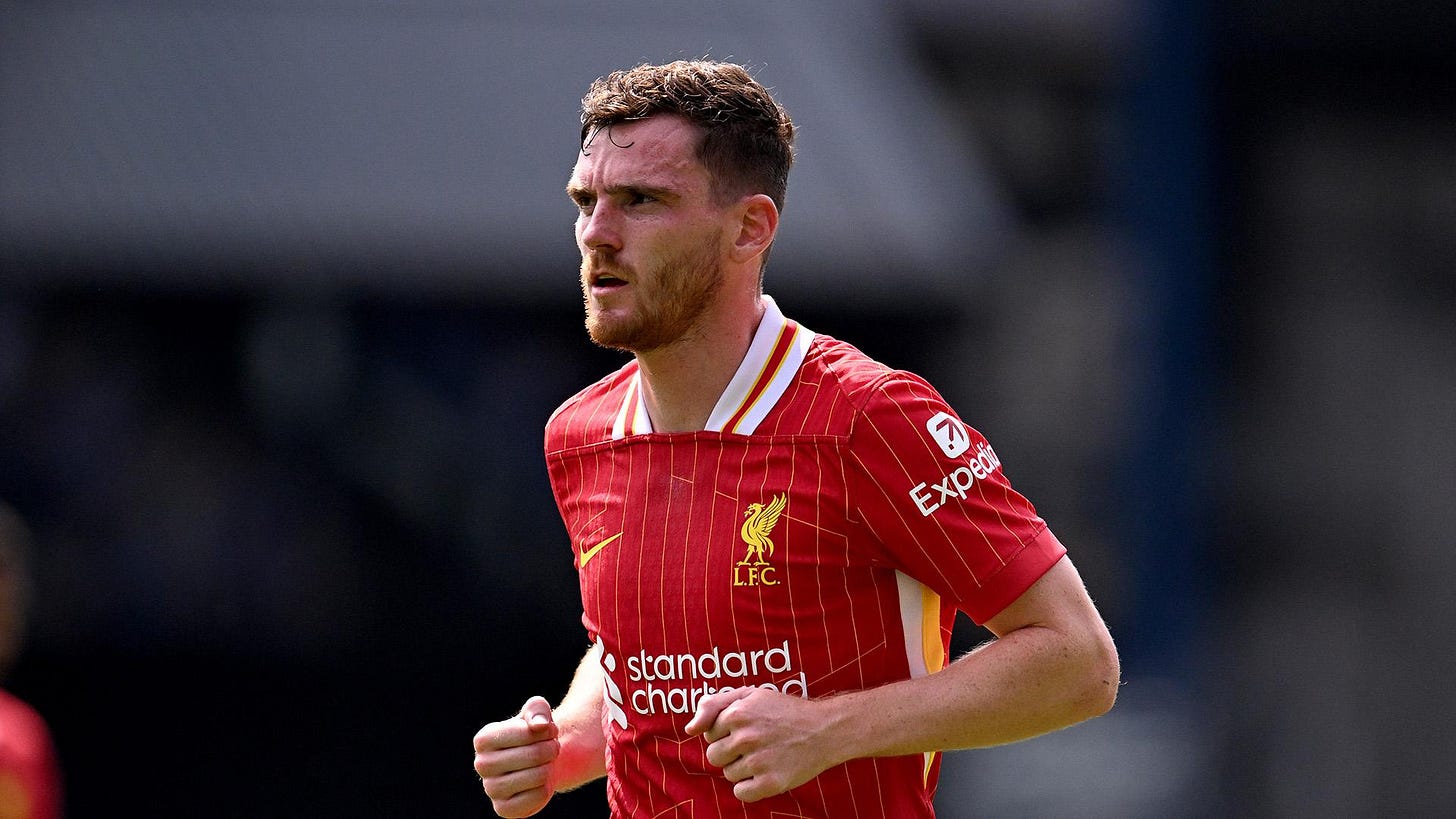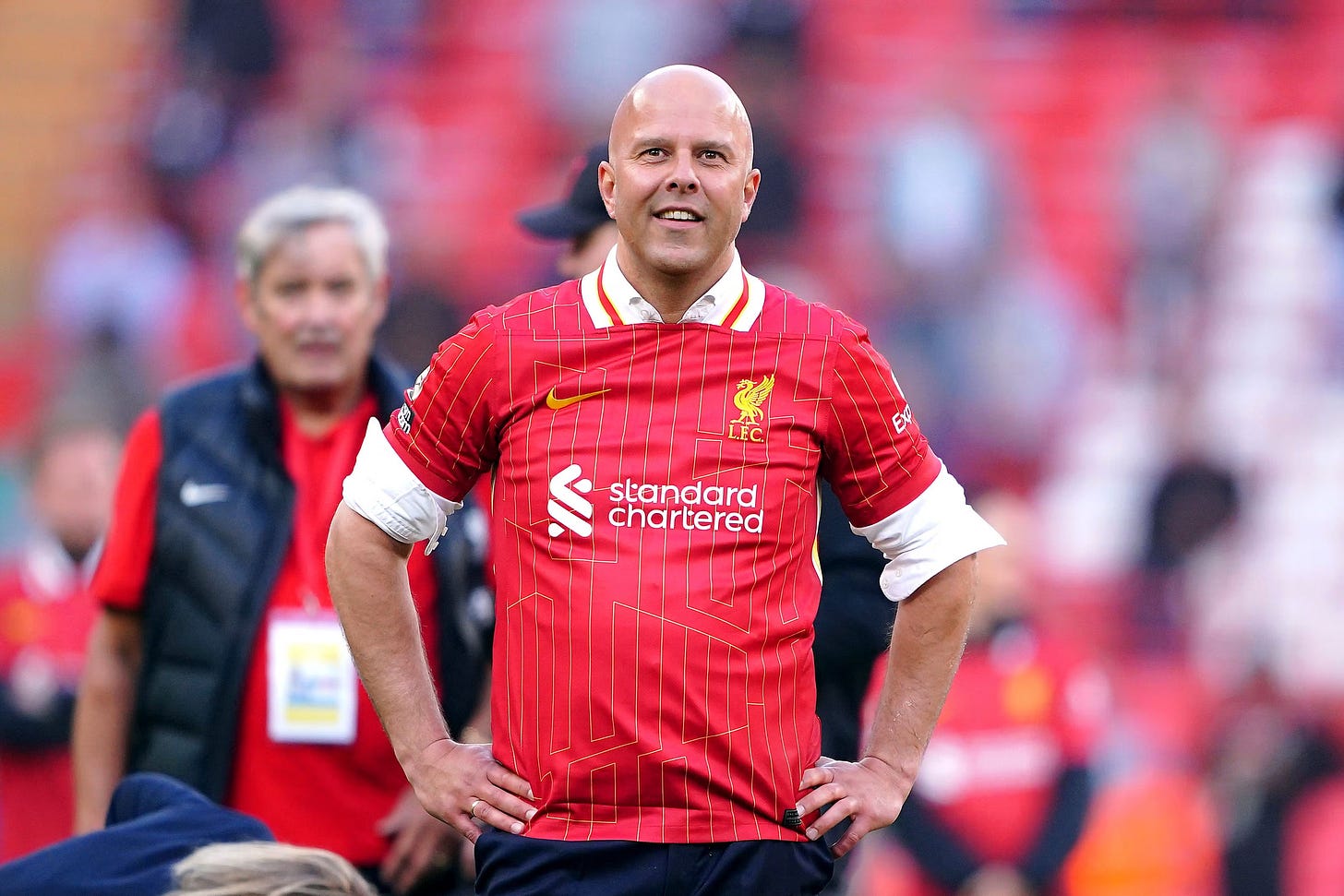Liverpool’s radical summer feels like 1987 all over again
Slot’s Liverpool: youth, power, and echoes of the Barnes era
With Florian Wirtz on Merseyside to finish the formalities for his move from Bayer Leverkusen, Jeremie Frimpong already announced and plenty more spending to be done in the next few weeks, this is shaping up to be one of the most transformative summers in Liverpool’s history. There are very few moments from the past that bear comparison.
Traditionally, the club always tried to strengthen from a position of power. Win the title, add top-class quality to the squad. Fenway Sports Group have been anything but traditional.
Yet the owners, their recruitment department and their triumphant head coach have recognised that this is a rare moment in football: a window of opportunity that could put Liverpool to the forefront of the game for the next half decade or more.
The policy of buying young players with room for development and a sell-on value has had mixed – but broadly positive –results. Wirtz, and to a lesser extent Frimpong, have the right age profile but are fully formed professionals who should stamp their personalities on the side. If any Premier League rivals are deluding themselves that Liverpool’s stumbling end to the season was because opponents had worked out how to stop Arne Slot’s team, then they are going to get a shock in August. If all goes well, the champions will have very different points of attack.
History Repeats: Echoes of 1987
It reminds me of the summer of 1987, a close season when the club were not in a position of strength. They had finished the previous campaign without a trophy and trailed Everton by some distance in the title race. However, what is similar is the bold movement in the transfer market and the determination to completely reshape the team.
Two players arrived in that summer 38 years ago that, frankly, blew our minds. Peter Beardsley cost a British transfer record of £1.9 million when he left Newcastle United for Anfield in July. That seemed a fairly straightforward replacement. Kenny Dalglish had reached the end of his playing career and Beardsley seemed as close to a replacement for the irreplaceable as you could ask for. Ian Rush was off to Juventus and John Aldridge was signed from Oxford United the previous January.
It was still a bit ‘meh’ at that point. Dalglish and Rush were the greatest strike force ever to wear the Liver Bird. Beardsley and Aldridge? Good, but could they seize the title back from Goodison?
Then came the masterstroke from Dalglish the manager. John Barnes. He cost a mere £900,000 from Watford. There have been lots of Holy Trinities in football and no one ever used the term for Barnes, Beardsley and Aldridge. Why? I don't know. Few trios were better to watch and more effective when it came to winning matches.
A drain collapsed in the Kop just before the season started and the first three home games were postponed. It was the away fans who got the first sense of shock and awe that these three attackers brought to English football.
Beardsley dropped deep into the channels, finding room with ease and laying the ball down the line for the onrushing Barnes.
Let's just take a moment. John Barnes. We had seen nothing like him. We had wondered how we would replace Dalglish. We couldn't. But Barnes changed how we saw the 'Liverpool way.' Maybe Wirtz can do this, too.
Barnes had a deceptive pace and a driving power that terrified defences. He could not be knocked off the ball and was so direct that a fizz of excitement went around the ground when he received the ball.
And when he got to the byline, he had a supreme target in Aldridge. Rush was a more complete player but few strikers had the instinct to get into the six-yard box like Aldridge. That was where Barnes wanted him.
A New Front-Footed Identity
The first three games of the 1987-88 season were among the most electrifying of my matchgoing life. The 2-1 win at Highbury over Arsenal was a magnificent performance against a team on the rise; the 4-1 rout of Coventry City at Highfield Road showed a side making thrilling improvements as the new boys developed their understanding; even the 1-1 draw against West Ham United at Upton Park verged on sensational. Some of the football, in the midst of an East End thunderstorm, was spectacular. Alan Hansen made a mistake that gifted a goal to the Hammers but, as The Guardian put it, “To Liverpool’s fame, add a bit more flair.”
The first defeat in the league came in the 30th game. Barnes was 23, Beardsley 26. It felt like this team could dominate well into the 1990s. Little did we know this golden age would be cut short within two years by tragedy.
Dalglish’s rebuild created a style so different to the previous incarnation that it was mindblowing. Slot appears to be trying to do a similar refashioning of the team. It’s exciting. Relish it.
Once again, Liverpool are signing the best players out there and the possibilities seem endless. These are good days.
The End of an Era for Andy Robertson
If Andy Robertson leaves, as seems likely, he will be missed. When he was signed from Hull City for an initial £8 million, there were plenty of doubters. Jurgen Klopp was among them.
A very senior football executive summed up the prevailing view in 2017: “Liverpool are now in the same market as Burnley?” He was laughing.
Who’s sniggering now?
But Klopp wasn’t having Robertson at first. The German preferred Alberto Moreno for the first part of the season. It wasn’t until Moreno was injured in December that the Scot got his chance. You’d say Robertson never looked back but that’s not quite true – he was always conscious of his defensive duties. Unlike some.
There’s so much to laud about Robertson. He’s a nark, a snide, a leader… What took so long for Klopp to see it?
Something Alex Oxlade-Chamberlain once talked about perhaps explains it. When the England midfielder came to Anfield, he struggled with the demands of training. Just at the point when he was fed up and started thinking that his future lay elsewhere, Oxlade-Chamberlain had an epiphany. He realised that he’d been a footballer for his entire career but now, for the first time, he was an athlete, too.
Robertson’s athleticism has been a hallmark of Liverpool’s play for eight seasons. At 31, the time is right for him to go.
See, you can wish departing players well, even if they do go to Madrid.
Tactical Shift Under Slot
I’ve thought a lot about how Wirtz’s presence and the changes at full back will affect Liverpool’s tactics. Well, Frimpong loves to get forward and Milos Kerkez – the next newcomer off the block – is no slouch raiding upfield.
Slot loved to get his wide defenders forward at Feyenoord. I’d expect them to be operating deep in the opposition’s half with frequency.
The big difference between the heady days between 2018 and 2020? The full backs will not be the creative hub of the side. Wirtz will be a huge threat. Goals will come from the central midfield. Liverpool will have numerous points of attack and the burden on Mo Salah will be relaxed.
If all this works out as Slot anticipates, managers and coaches in the Premier League and across Europe will be sitting up late at night trying to work out a plan. They’ll be sick with worry when facing the Reds.






